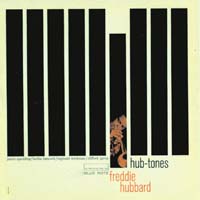Artist: Dave Brubeck Quartet Album: Jazz Impressions of Japan
Year: 1964Duration: 0:0-1
A Critical Review of the Album: Jazz Impressions of Japan by the Dave Brubeck Quartet
Dave Brubeck is an American jazz pianist and composer who is known for his innovative approach to jazz music. One of his most acclaimed works is the album, Jazz Impressions of Japan, which was released in 1964. The album is a testament to Brubeck's unique and creative style as well as his influence on the jazz genre. In this blog post, we will explore this album in detail and discuss its most noteworthy aspects.
The Dave Brubeck Quartet's Jazz Impressions of Japan is a fusion of jazz and traditional Japanese music. The album features eight tracks, all of which were composed by Brubeck while on a tour of Japan. The album begins with the track Toki's Theme, which is characterized by its fast-paced rhythm and impressive piano work. The song features a unique melody that showcases Brubeck's skill as a composer.
One of the best tracks on the album is Koto Song. This particular song is notable for its fusion of Japanese traditional music and modern jazz. The song features a koto, a traditional Japanese stringed instrument, which runs throughout the track. Brubeck's piano work is especially noteworthy, as it blends seamlessly with the koto, creating a powerful and moving sound.
Another highlight of the album is Fujiyama. This track features a cheerful and upbeat tone that is reminiscent of Japanese folk music. The song features a lively melody that is accompanied by enthusiastic drumming and bass work. The song is an excellent showcase of Brubeck's ability to blend traditional Japanese music with modern jazz and create a unique and compelling sound.
Perhaps the most innovative part of the album is the way that Brubeck fuses jazz improvisation with traditional Japanese music. The album features several moments of improvisation that blend seamlessly with the traditional melodies. Brubeck was able to create a sound that was both modern and traditional, resulting in an album that was ahead of its time.
While Jazz Impressions of Japan is an excellent album, it is not without criticism. Some argue that the album lacks coherence and that the fusion of jazz and traditional Japanese music is at times jarring. The album can also be seen as a product of its time, as it reflects the cultural and political climate of the era.
Despite its flaws, Jazz Impressions of Japan remains a critical milestone in the history of jazz music. The album is an excellent example of fusion music and showcases Brubeck's talents as a composer and jazz pianist. With its seamless fusion of traditional Japanese music and modern jazz, the album is a testament to Brubeck's innovative style and his influence on the genre.
Other #Jazz albums:
SIMILAR BANDS
balls, from 1 to 5, describe similarity between the two bands
SOMETHING NEW? LISTEN TO RADIOGENRE
SUGGESTED PLAYLISTS
































 Cruilla
Cruilla Garage house
Garage house Tuning
Tuning Latin rock
Latin rock Post hardcore
Post hardcore House music
House music Turkish Music
Turkish Music 2step
2step Blues
Blues Deep dub
Deep dub The very best of nu jazz
The very best of nu jazz The very best of techno hardcore
The very best of techno hardcore Relax and take a trip hop
Relax and take a trip hop Finding God in music
Finding God in music The very best of electro pop
The very best of electro pop The wind from the Far East
The wind from the Far East When the Metal is female
When the Metal is female The very best of progressive metal
The very best of progressive metal Discovering talents at the Busker festival
Discovering talents at the Busker festival Reality surpasses fiction
Reality surpasses fiction